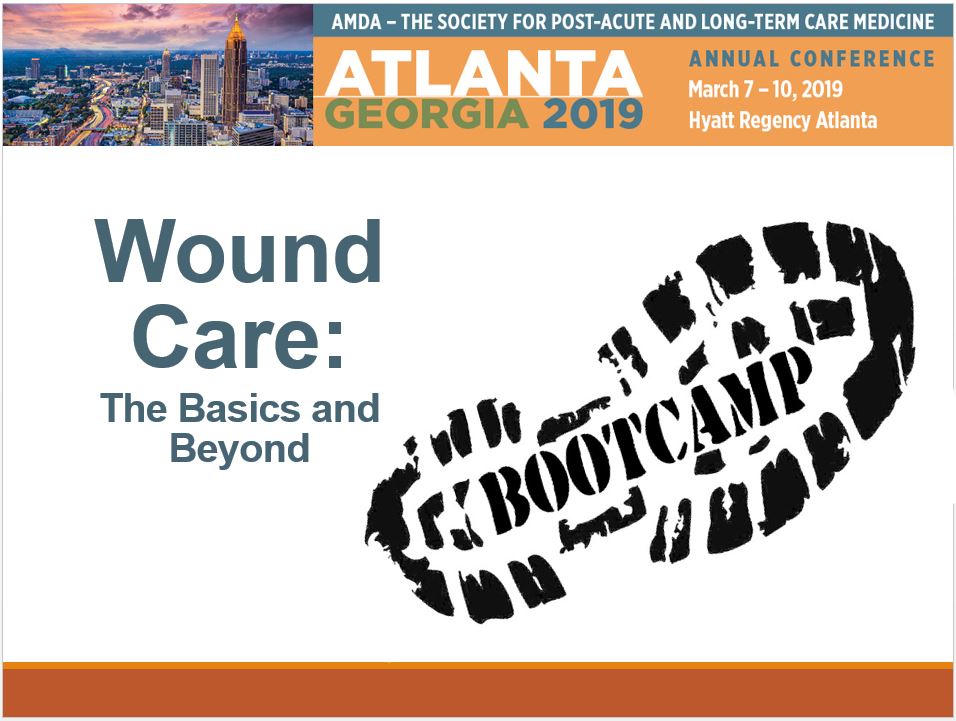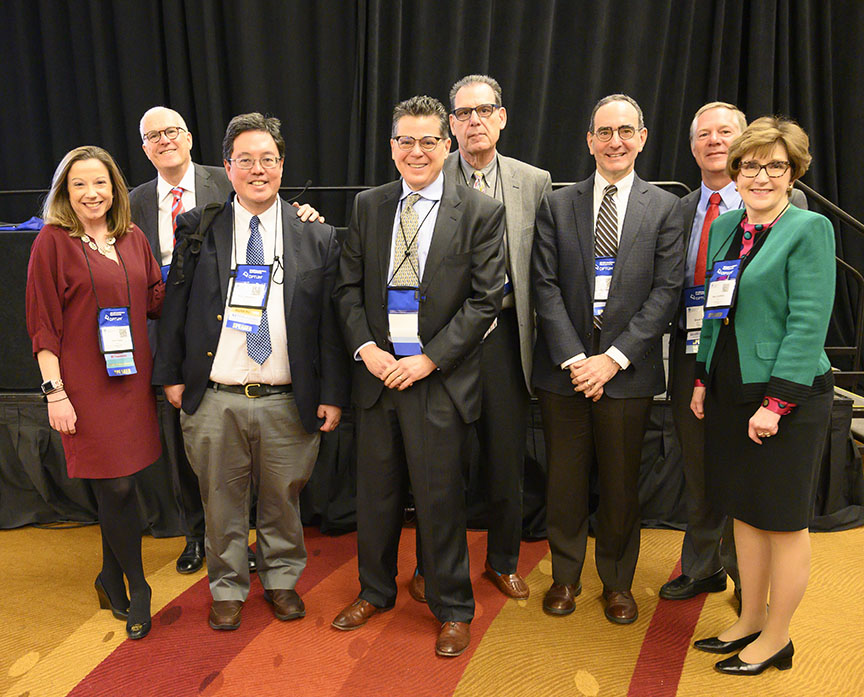
Many times I’ve been asked to provide a lecture on wound care with an allotted time of 45 minutes to one hour. The reality is that wound care is so complex that one hour will provide only a superficial overview which may not serve many front-line clinicians. This year I had the opportunity to organize a half-day program at the Annual Meeting of AMDA/PALTC in Atlanta, recruiting some of the best wound educators in the country. The title of our program was Wound Care Boot Camp: The Basics and Beyond.
The transformation of the nursing home into a post-acute environment has increased acuity levels, causing a surge in demand for complex services including wound care. Because wound care is rarely taught in medical training, and the field had undergone many changes in recent years, there is a huge demand for educational programs. My goal in organizing this program was to meet this need.

Left to right: Vycki Nalls GNP-BC, CWS, ACHPN, , Jeff Levine MD, AGSF, Paul Takahashi MD, MPH, Scott Bolhack MD, MBA, CMD, CWSP, Art Stone DPM, Gary Brandeis MD, CMD, Shark Bird MD, CWSP, Mary Litchford PhD, RDN, LDN
The program included the following speakers and topics:
• Gary Brandeis MD, CMD: Assembling the wound program: Administrative Challenges
• Art Stone DPM: Prevention Overview
• Paul Takahashi MD: Treatment Products Overview
• Mary Litchford PhD, RDN: LDN Nutritional Aspects of Wound Care
• Vycki Nalls GNP-BC, CWS, ACHPN: Team Building: What to Expect from a Wound Nurse
• Shark Bird MD, CWSP: The Ins and Outs of Outsourced Wound
• Karl Steinberg MD, CMD, HMDC: Medical-Legal Aspects of Wound Care
• Jeff Levine MD, AGSF: Skin Failure, Terminal Ulceration, & Palliative Care
• Scott Bolhack MD, MBA, CMD, CWSP: Wound Infections
I’ve been an active member of AMDA for over three decades, and its been a professionally rewarding experience to participate and see it grow. AMDA – The Society for Post-Acute and Long-Term Care Medicine represents over 50,000 medical directors, doctors, nurse practitioners, physician assistants, and other practitioners working in various post-acute and long-term care (PALTC) settings. Their membership draws from long-term care, assisted living, home care, hospice, and other locations in the healthcare continuum. Their mission is to promote and enhance the quality of care across all post-acute and long-term care settings.
Thank you AMDA/PALTC for this opportunity!
* * * * * * * * * * * * * * * *
Related links:
Is the Pressure Injury Staging System Obsolete?
New review article on terminal ulceration published in Advances in Skin and Wound Care
Pressure Ulcers are an Under-Appreciated Public Health Issue
